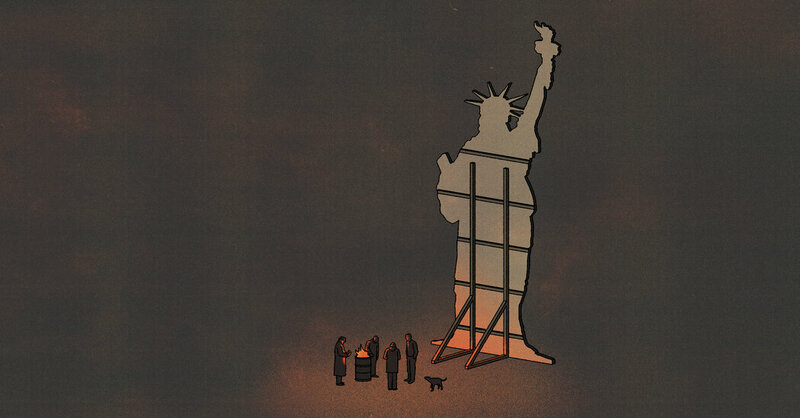Posted on Apr 10, 2022
Ronald Reagan’s New Economic Order, and What It Meant for America
1.47K
12
2
10
10
0
Posted >1 y ago
Responses: 2
Regan definitely appealed to the "working man" in America, I was in the military at the time and was so glad he kept Carter from a second Presidency. Carter treated the military like crap, pay raises were nearly non existing even though inflation was growing, and the the debacle in the desert. Within days of Reagan's election the mood of the country lightened, the Iranian hostages were freed, and it felt like our pride was being restored. We also got a real nice pay raise.
(2)
(0)
That has got to be one of the shallowest book reviews I've ever read, attempting to distill what is almost certainly a complex narrative into a single-dimension discussion of racism.
For comparison, consider the abstract from the book author's 2018 paper sharing the same title:
"This paper argues that the last eighty years of American politics can be understood in terms of the rise and fall of two political orders. The first political order grew out of the New Deal, dominating political life from the 1930s to the 1970s. The history of this order (the New Deal Order) is now well known. The other order, best understood as ‘neoliberal’ in its politics, emerged from the economic and political crises of the 1970s. This paper is one of the first to elucidate the political relationships, ideological character and moral perspective that were central to this neoliberal order's rise and triumph. The paper's narrative unfolds in three acts: the first chronicles the 1980s rise of Ronald Reagan and the laissez-faire Republican party he forced into being; the second shows how the collapse of communism in the late 1980s and early 1990s accelerated the globalization of capitalism and elevated neoliberalism's prestige; and the third reveals how a Democratic president, Bill Clinton, facilitated his party's capitulation to neoliberal imperatives. Political orders encourage such capitulation, the paper argues, by universalizing their own ideological principles and making alternative ideologies seem marginal and unworkable. A coda shows how the Great Recession of 2008 fractured America's neoliberal order, diminishing its authority and creating a space in which different kinds of politics, including the right-wing populism of Donald Trump and the left-wing populism of Bernie Sanders, could flourish."
For comparison, consider the abstract from the book author's 2018 paper sharing the same title:
"This paper argues that the last eighty years of American politics can be understood in terms of the rise and fall of two political orders. The first political order grew out of the New Deal, dominating political life from the 1930s to the 1970s. The history of this order (the New Deal Order) is now well known. The other order, best understood as ‘neoliberal’ in its politics, emerged from the economic and political crises of the 1970s. This paper is one of the first to elucidate the political relationships, ideological character and moral perspective that were central to this neoliberal order's rise and triumph. The paper's narrative unfolds in three acts: the first chronicles the 1980s rise of Ronald Reagan and the laissez-faire Republican party he forced into being; the second shows how the collapse of communism in the late 1980s and early 1990s accelerated the globalization of capitalism and elevated neoliberalism's prestige; and the third reveals how a Democratic president, Bill Clinton, facilitated his party's capitulation to neoliberal imperatives. Political orders encourage such capitulation, the paper argues, by universalizing their own ideological principles and making alternative ideologies seem marginal and unworkable. A coda shows how the Great Recession of 2008 fractured America's neoliberal order, diminishing its authority and creating a space in which different kinds of politics, including the right-wing populism of Donald Trump and the left-wing populism of Bernie Sanders, could flourish."
(0)
(0)
Read This Next



 Reading
Reading Ronald Reagan
Ronald Reagan Freedom
Freedom Economics
Economics Capitalism
Capitalism


